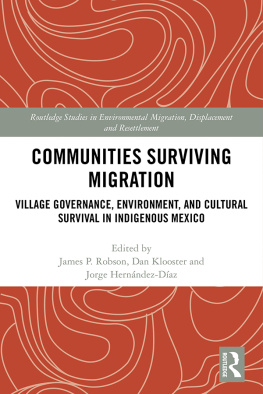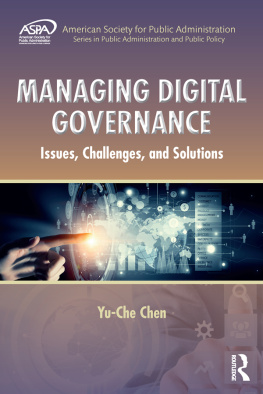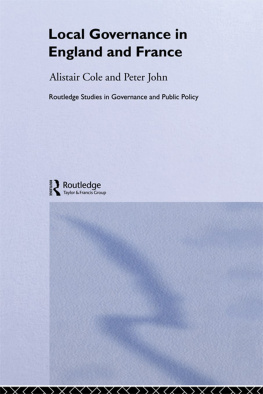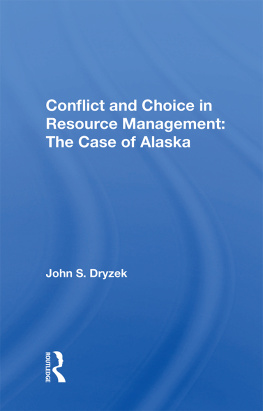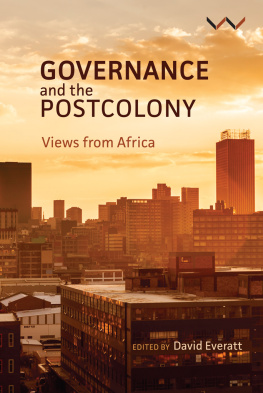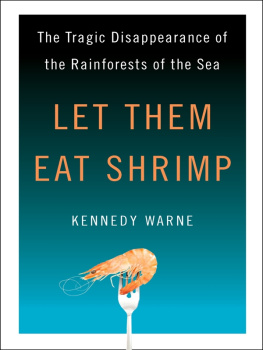LIFE, FISH AND MANGROVES
Resource governance in coastal Cambodia
Governance Series
Governance is the process of effective coordination whereby an organization or a system guides itself when resources, power, and information are widely distributed. Studying governance means probing the pattern of rights and obligations that underpins organizations and social systems, understanding how they coordinate their parallel activities and maintain their coherence, exploring the sources of dysfunction, and suggesting ways to redesign organizations whose governance is in need of repair.
The series welcomes a range of contributionsfrom conceptual and theoretical reflections, ethnographic and case studies, and proceedings of conferences and symposia, to works of a very practical naturethat deal with problems or issues on the governance front. The series publishes works both in French and in English.
The Governance Series is part of the publications division of the Centre on Governance and of the Graduate School of Public and International Affairs at the University of Ottawa. This is the 28 th volume published in the series. The Centre on Governance and the Graduate School of Public and International Affairs also publish a quarterly electronic journal, www.optimumonline.ca .
Editorial Committee
Caroline Andrew
Linda Cardinal
Monica Gattinger
Luc Juillet
Daniel Lane
Gilles Paquet (Director)
The published titles in the series are listed at the end of this book.
University of Ottawa Press, 2012
The University of Ottawa Press acknowledges with gratitude the support extended to its publishing list by Heritage Canada through its Book Publishing Industry Development Program, by the Canada Council for the Arts, by the Canadian Federation for the Humanities and Social Sciences through its Award to Scholarly Publications Program, by the Social Sciences and Humanities Research Council, and by the University of Ottawa.
We also gratefully acknowledge the Centre on Governance and the Faculty of Social Sciences at the University of Ottawa whose financial support has contributed to the publication of this book.
LIBRARY AND ARCHIVES CANADA CATALOGUING IN PUBLICATION
Marschke, Melissa, 1973-
Life, fish and mangroves : resource governance in
coastal Cambodia / Melissa Marschke.
(Governance series, 1487-3052 ; 28)
Includes bibliographical references and index.
ISBN 978-0-7766-0772-6
1. Natural resources--Co-management--Cambodia.
2. Natural resources--Government policy--Cambodia.
3. Fishery co-management--Cambodia.
4. Cambodia--Rural conditions. I. Title.
II. Series: Governance series (Ottawa, Ont.) ; 28
HC442.Z65M37 2012 333.7309596 C2011-908038-9
PDF 978-0-7766-1986-6
ePUB 978-0-7766-1985-9
eBook development by Wild Element, www.WildElement.ca
ACKNOWLEDGEMENTS
I have never had the words to explain adequately my experiences of living, working and conducting research in the mangrove-estuary villages of southwestern Cambodia. I was introduced to the area as a graduate student, continued on as a practitioner facilitating natural resource management activities, became interested in commons dilemmas and rural livelihoods, and am now an academic reflecting upon the entire experience. In this process I have been a long-term witness, and, in a few instances, facilitator, to the ebbs and flows of a twelve-year resource governance experiment. This has served as a catalyst to dig through my field notes and reflect upon this process, do follow-up research and complete this book.
Funding came in the form of an International Development Research Centre (IDRC) Bene Fellowship in Social Forestry (1998), an IDRC International Doctoral Research Award (2002), a Social Sciences and Humanities Research Council (SSHRC) Doctoral Fellowship (20022005), a SSHRC-MCRI Post-Doctoral Fellowship (20052007), and, most recently, through my start-up funds at the University of Ottawa (20072010). Between 1999 and 2001, I worked as a Research Consultant with Canadas IDRC to support a government-led research team working on facilitating natural resource management planning and activities in southwestern Cambodia. This experience, along with other consultancy and research opportunities that have brought me back to the area, has helped to ensure continuity in my field research.
My list of thanks could easily extend for pages. I am grateful to Dr. Brian Davy, Dr. Gary Newkirk, Toby Carson, Dr. Stephen Tyler and Dr. Hein Mallee, who have continuously supported my involvement in this research and provided engaging discussions on both conceptual and practical ideas. Thanks to Amanda Bradley, Jen Graham, Becky Guieb, Hou Kalyan, Becky Kiniakin, Srey Marona, Sry Mom, Min Muny, Ken Serey Rotha, Katrin Seidel, Nhem Sovanna, Cor Veer and Dr. Emma Wittingham for enthralling, fruitful discussions over the years. Thanks, too, for the lengthy conversations I have had with so many villagers, particularly Dom, Sok, Preun, Sovanna and Wayne. Finally, it was Kim Nong and the entire Participatory Management of Coastal Resources (PMCR) team in all its combinations, including, among others, Ouk Li Khim, Dyna Eam, Khy An, Keo Piseth and Chhin Nith, who made this field work possible, enjoyable and so enriching. Thank you.
I have had excellent academic mentorship. Thanks in particular to Dr. Peter Vandergeest, Dr. Fikret Berkes and Dr. John Sinclair. Thanks, too, to the Challenges of Agrarian Transitions in Southeast Asia (ChATSEA) project team led by Dr. Rudolph de Koninck: I gained a lot from our workshops and meetings throughout the past five years. A special thanks to the re-study gang, led by Dr. Jonathan Rigg and Dr. Peter Vandergeest. Our rich group discussions enabled me to think about how to discuss change over time, which became a major focus of this manuscript. Thanks to Peter Vandergeest and Ron Jones, who gave feedback on an earlier version of this manuscript, and to my fourth-year students, who lent further pairs of eyes to this project. Here at the University of Ottawa, Dr. Gilles Paquet was ever so patient as I coaxed this manuscript out, giving timely, constructive feedback along the way. I also appreciate the support of Dr. Jim Gardner and Dr. Jonathan Rigg who generously reviewed this manuscript and helped me to sharpen my analysis.
Family and friends, of course, endure such a process and provide the necessary support to make such an endeavour possible. Thanks to Dieter, Dagmar and Jannette Marschke. A special thanks to Mark, whose encouragement, constructive feedback and cosistent support has been simply tremendous.



